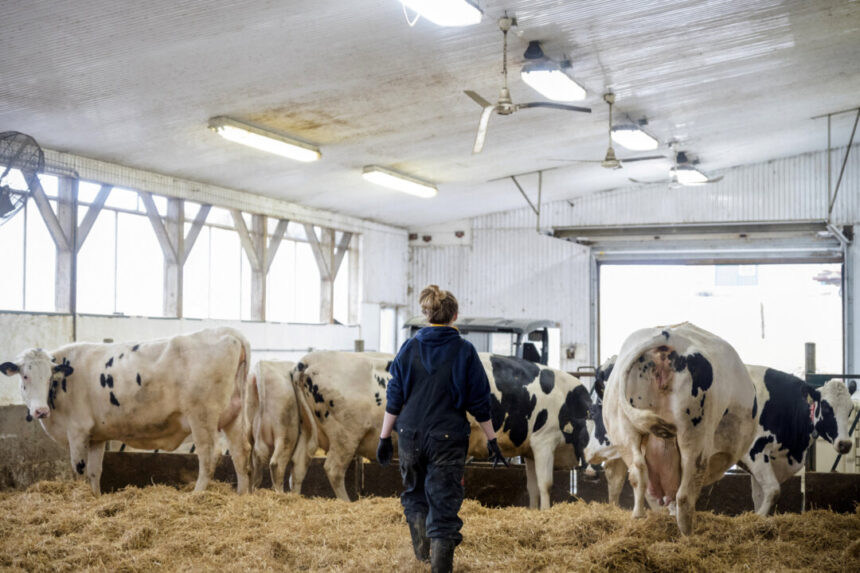Nearly three-quarters of Canadians support a carbon tax exemption on natural gas and propane for farmers, according to a recently released report.
According to data collected by Leger on behalf of the Canadian Taxpayers Federation (CTF), 39 percent of those surveyed strongly support the exemption for farmers, while 31 percent somewhat support it.
Only 7 percent strongly oppose the measure, with 8 percent somewhat opposing it, and 15 percent uncertain, as per the survey findings.
The results indicate a clear need for Ottawa to heed the wishes of Canadians and pass the farm heating bill in its original form, stated CTF prairie director Gage Haubrich.
Also known as Bill C-234, the legislation proposed by the Conservatives aims to amend the Greenhouse Gas Pollution Pricing Act to extend carbon tax exemptions to cover the natural gas and propane used by farmers for drying grain and heating or cooling barns.
The House passed the eight-year exemption last fall with support from the Conservatives, the NDP, the Bloc Québécois, the Green Party, and some Liberal MPs.
In December, the Senate modified the legislation to limit the exemption to three years and only for propane used in grain dryers.
Support for the exemption was widespread across Canada, with Alberta leading at 76 percent, followed by British Columbia at 72 percent, Ontario at 70 percent, and Quebec and Atlantic Canada each at 68 percent. Manitoba and Saskatchewan showed 67 percent support.
Farmer Costs
The carbon tax on natural gas and propane could cost farmers nearly $1 billion by 2030 unless an exemption is granted, according to the Parliamentary Budget Officer.
According to stats from the Agriculture Carbon Alliance (ACA), the average livestock farmer could face a $726 monthly carbon tax bill, while crop farmers may expect a $2,024 bill.
Greenhouses could see an average carbon tax bill exceeding $17,000, noted the ACA, a coalition of 15 farm associations including the Canadian Federation of Agriculture, the Canadian Cattle Association, and the Canadian Grain Growers.
Canadian Federation of Agriculture president Keith Currie emphasized that the carbon tax places a financial strain on farmers, hindering their ability to invest in operational improvements.
Canadian Cattle Association president Nathan Phinney echoed this sentiment, emphasizing the need for farmers to have the financial resources to implement environmental improvements.
“Bill C-234 will support these environmental objectives by providing necessary exemptions for crucial farm practices such as steam flaking and temperature regulation for livestock barns,” he added.
Mr. Haubrich highlighted that the monthly carbon expenses impact Canada’s agricultural competitiveness, as U.S. farmers are not subjected to similar environmental taxes. Removing the tax could enhance Canadian farmers’ ability to compete and benefit consumers as well.
“By eliminating the carbon tax burden on farmers, we can potentially help reduce grocery prices for all of us,” he remarked.
Conservative Leader Pierre Poilievre has asserted that abolishing the carbon tax for farmers would contribute to lowering food costs.
The Canadian government implemented the carbon tax in 2019, citing the necessity to achieve net-zero carbon emissions by 2050.
Can you rephrase this?
Source link








